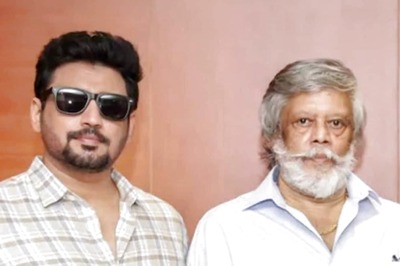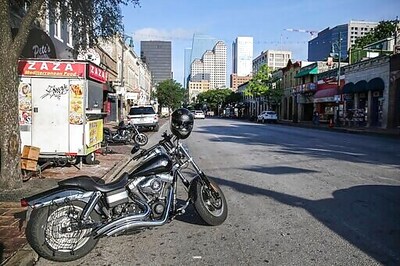
views
Bengaluru: With the sudden increase in number of Covid19 cases in Bengaluru (urban), the Bruhat Bengaluru Mahanagara Palike (BBMP) is looking to widen its testing criteria by including people in high risk locations. The civic body has identified these areas as markets, malls, medical establishments and similar such places.
"Instead of waiting for positive cases to come to us, we have proposed to government to take up active surveillance/screening of people. We have identified 8 to 10 areas which are high risk potential areas and these areas we will have to go out and take up active testing to a large extent. Some of these areas are malls, supermarkets, hotels and restaurants, markets, medical establishments — hospitals, labs, diagnostic centers … areas where chances of super spreader coming up," BH Anil Kumar, BBMP Commissioner, told CNN News18.
"Looking at the clusters that were related to the Chennai Koyambedu market, in anticipation of super spreaders being there in community, we have to trace and test. For example, everyday on an average, a vegetable vendor would be contacting around 50 people. If he contracts the virus, he would spread it to these many contacts. So we need to go out and check them, pick them and test them. If positive, isolate them. We will apply the strategy to slums also," he added.
The number of cases in Bengaluru stands at 772 with 47 new cases reported on Tuesday. Ten days ago on June 6, Bengaluru reported a total of 452 Covid-19 infections. The death rate almost tripled in this period from 13 to 38 and the number of containment zones increased from 49 to 191.
"We discussed the death rate also. What we have found is that ILI and SARI cases are coming in the later stages. They are first going to private hospitals for treatment. Once that's not successful, they come here," Anil Kumar said.
In spite of the guidelines in place to test all ILI and SARI cases for Covid-19, the private hospitals hold on to these cases and relieve them only when they know they cannot treat it, he said.
However, with the increase in number of cases in the state, government is also mulling roping in private hospitals to treat the virus.
The state has reported a total of 7,530 cases as of Tuesday. Of this, 5,133 or 68 per cent have history of domestic travel. On Monday, the Karnataka government announced that with the existing rule of Maharashtra returnees undergoing seven days of institutional quarantine followed by seven days of home quarantine, those returning from Tamil Nadu and Delhi would also be required to be in three days of institutional quarantine followed by 11 days of home quarantine (with exemption of vulnerable population and short stay travellers). Returnees from all other states will undergo 14 days of home quarantine.
A task force has also been formed with 14 different tasks, including contact tracing, identifying SARI and ILI cases. For each task, there is also an inter-disciplinary team which includes police, BBMP officials and a senior IAS officer who is looking at strategies for each task. The state government is also doing a door-to-door survey to identify vulnerable population and is looking at reverse quarantine of this population.
"With relaxations allowed, most are stepping out now, including for work. When they go back home, the elders at home would be at risk of contracting the virus. Institutionally quarantining them would not be possible, keeping them away from family so we are looking at quarantining them at home and frequently checking their health status," said Ashwath Narayan, deputy Chief Minister.




















Comments
0 comment